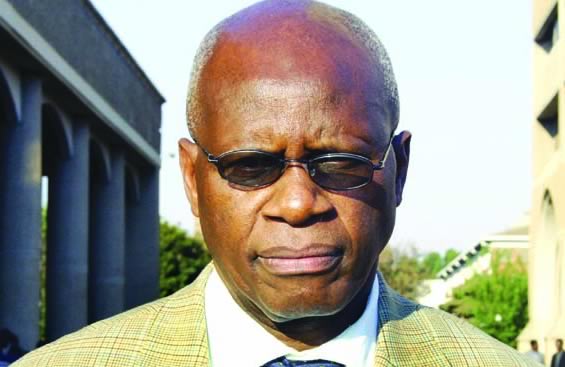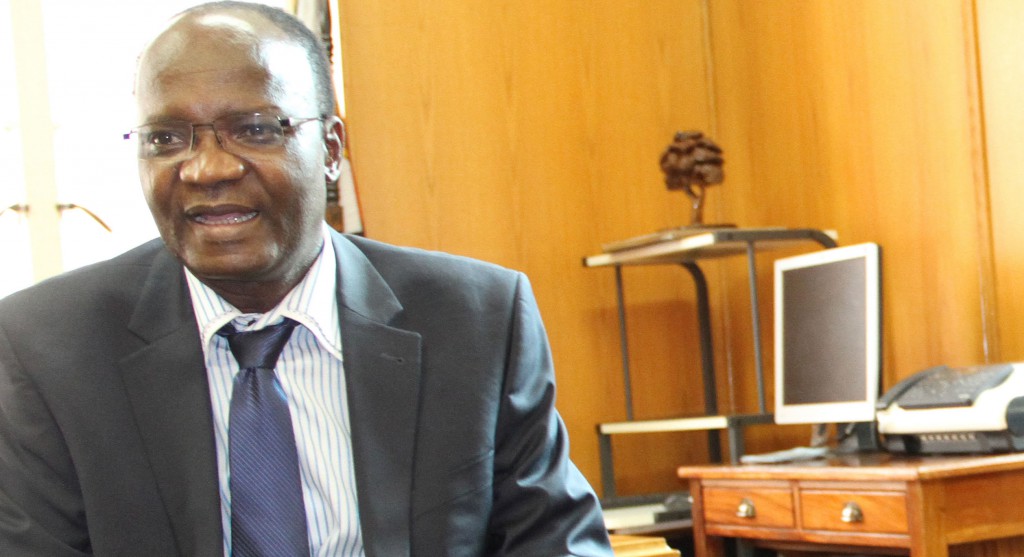Time for sloganeering gone

Limukani Ncube
EVENTS happening on the Zimbabwean political and economic fronts can only suggest one thing to political players and the populace — time for sloganeering is gone.
In simpler terms, time for name-calling and finger-pointing is gone, and those who are still entrenched in the election mode risk being irrelevant. In fact, those who are still in the election mode, those who believe that certain things are done or said because one belongs to Zanu-PF or any other party for that matter, or those who believe certain things are said or done because one belongs to a “certain faction” in the ruling party, if that vocabulary has a place in the revolutionary party, risk being left behind by the national train being driven by His Excellency, President Mugabe who has underlined that now it’s implementation time.
The implementation phase manifested itself in the launch of the Zimbabwe Agenda for Sustainable Socio-Economic Transformation (Zim Asset), which will direct government energies until 2018. The Zim Asset document, a new phenomenon, was drafted and presented to the country and the world in about two weeks after the announcement of the new cabinet. That alone should have been a warning sign that “walala wasala”(you snooze you lose), things are going to be done differently this time around and those given jobs by His Excellency in the cabinet will not earn their living by simply chanting party slogans or demonising those they do not like within the party — something common in human beings — or from across the political divide, but will only earn the trust of the people of Zimbabwe by implementing the promises made by the revolutionary party in its election manifesto, and using the Zim Asset document as the bible to take Zimbabweans to Canaan.
Of course, some of the submissions in the document might be overcome by events, or some important issues might arise and require attention, but Zim Asset will always provide the pillars of success and give direction to government policies. President Mugabe said Zim Asset was crafted to achieve sustainable development and social equity anchored on indigenisation, empowerment and employment creation which will be largely propelled by the judicious exploitation of the country’s abundant human and natural resources.
“This Results Based Agenda is built around four strategic clusters that will enable Zimbabwe to achieve economic growth and reposition the country as one of the strongest economies in the region and Africa. The four strategic clusters identified are: Food Security and Nutrition; Social Services and Poverty Eradication; Infrastructure and Utilities; and Value Addition and Beneficiation.
“No doubt, this cluster approach will enable government to prioritise its programmes and projects for implementation with a view to realising broad results that seek to address the country’s socio-economic challenges. Given the resource constraints, government will come up with robust and prudent fiscal and monetary policy measures to buttress and boost the implementation of Zim Asset. Government ministries and agencies, the private sector and development partners, and the nation at large are therefore called upon to work together in championing the implementation of this Results Based Agenda.
“This economic blueprint was developed through a consultative process involving political leadership in the ruling Zanu-PF Party, government, private sector and other stakeholders. Source documents recognise the continued existence of the illegal economic sanctions, subversive activities and internal interferences from hostile countries. This therefore calls for the need to come up with sanctions busting strategies, hence Zim Asset’s focus will be on the full exploitation and value addition to the country’s own abundant resources,” reads part of the document.
To underscore the fact that what the country needs now are men and women, young and old alike, who will work towards achieving set goals, the government came up with a vision anchored on the document, “Towards an Empowered Society and a Growing Economy”. And for the first time, office bearers, including party Members of the House of Assembly, will be assessed to determine if they are working for the people of Zimbabwe or not.
“The implementation of Zim Asset will be underpinned and guided by the Results Based Management (RBM) System and will be used as a basis for the macroeconomic budgetary framework by Treasury, commencing with the 2014 fiscal year.”
Zim Asset is cluster based, reflecting the strong need to fully exploit the internal relationships and linkages that exist between the various facets of the economy. The successful implementation of Zim Asset will enable the country to create a new economy, as suggested by Finance Minister Cde Patrick Chinamasa when he presented the 2014 national budget. The budget presentation boldly ushered in a new economic dispensation as the minister gave Zimbabwe its first policy-driven national budget in more than a decade. The budget set the tone for the creation of an enabling environment that will promote meaningful partnerships between government, the private sector and international investors, and this requires implementation and not sloganeering.
The budget could have been short on money and long on policy, but Minister Chinamasa said policy consistency, credibility, certainty and transparency were critical blocks for confidence building in the domestic economy, over and above the prevailing stable macro-economic environment.
Referring to media inferences that the economy was “dead”, the minister said the assertion was true only to the extent it related to the old economy; pointing out that with the old economy “dead”, a new one was emerging. He thus urged the banking sector to pay heed to structural changes that have taken place in the economy through financial support to a new clientele of farmers and indigenous enterprises. Key policy areas which he said needed attention were isolated, but overall the minister recognised the importance of the agriculture and mining sectors.
Victory by the ruling party in the last election was resounding, and took everyone with revolutionary grounding back to the 1980 elections, which were also defining and won by President Mugabe and Zanu-PF so convincingly such that months and months could have been spent on victory celebrations, and it could have been befitting, but no, that was not the case. Within two weeks of the new government, it was time for implementation because a lot of productive time had been lost in recent years with office bearers put in important national offices deciding to take Zimbabweans for a ride by taking their eyes off the ball and choosing to ingratiate themselves in sloganeering in a vain attempt to outwit one another, albeit at the expense of voters.
Events playing out in the media nowadays are a result of the pursuit to implement some of the policies that will make Zimbabwe a better country. Of course, media houses have different mission statements and editorial policies, but there is more that brings people together as Zimbabweans than just guiding paperwork in workplaces. The Minister of Information, Media and Broadcasting Services, Professor Jonathan Moyo, has always insisted that the media should serve national interest and his call has been heard loud and clear as there is an attempt to articulate national issues, barring any bad apples here and there.
The tackling head on of corruption in both private and public organisations has made Zimbabweans believe once again that there are no “sacred cows and sacred bulls”, to borrow Minister Moyo’s words, and thus the ills of our society can be revealed and a cure sought — painful as it might be for some people.
An objective media and objective ruling party will help rebrand the country and show the world a new image of Zimbabwe that does not condone underhand dealings, thus attract more foreign direct investment. If those who are found on the wrong side of the law are arrested and prosecuted, then the detractors of this beautiful nation will lose breath because it will be emphasised more and more that Zimbabwe is not a banana republic.
Results will come, though not overnight. But already, the European Union has shifted its stance on illegal sanctions by lifting travel embargos on some political figures and the United States even extending aid to the education sector recently, but because of the nature of politics, some things are still done begrudgingly by the West, and as such, the so-called lifting of travel bans on some individuals was dismissed as a farce locally.









Comments